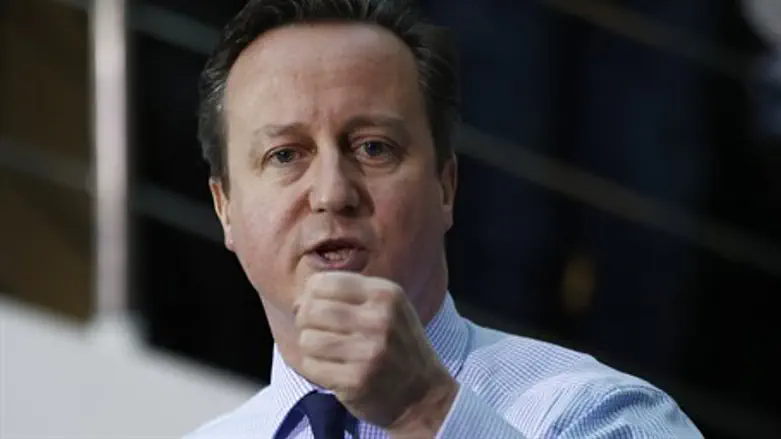
British Prime Minister David Cameron used particularly harsh language against Israel's presence in eastern Jerusalem, Judea and Samaria which were liberated during the 1967 Six Day War.
Speaking at Parliament, Cameron branded Israel’s construction of new communities in these areas as “genuinely shocking”, The Independent reported.
The Prime Minister said that though he was a strong supporter of Israel, he had been taken aback by what had seen first hands on visits to Jerusalem.
“I am well-known as being a strong friend of Israel but I have to say the first time I visited Jerusalem and had a proper tour around that wonderful city and saw what has happened with the effective encirclement of East Jerusalem – occupied East Jerusalem – it is genuinely shocking,” he was quoted by The Independent as having told MPs in the House of Commons.
“What this government has consistently done and gone on doing is saying yes, we are supporters of Israel, but we do not support illegal settlements, we do not support what is happening in East Jerusalem and it’s very important that this capital city is maintained in the way that it was in the past,” he added.
The Independent noted that in January, Foreign Office minister Tobias Ellwood condemned the Israeli Government’s decision to commission 450 new homes in Judea, Samaria and eastern Jerusalem, at the height of the latest wave of violence.
“We urge the Government of Israel to reverse this decision. It is important to focus on steps that are conducive to peace,” he said in a statement at the time.
Cameron's comments come just one day after three British lawmakers from both Cameron's Conservatives as well as Labour stood up in Parliament and condemned Palestinian incitement, violence and terror tunnels.
Ellwood, who just last month condemned Israel, agreed with the three and condemned not only the incitement coming from within the Palestinian Authority (PA), but also the anti-Semitic attacks in Europe as a result.
The issue of Israel's alleged “occupation” recently came up when UN Secretary-General Ban Ki-moon appeared to express sympathy for Palestinian terror attacks against Israelis, claiming the attacks were a result of "Palestinian frustration" over the “occupation”.
Prime Minister Binyamin Netanyahu reacted angrily to Ban’s statements, saying they “give encouragement to terror.”
A host of Israeli politicians blasted Ban’s remarks as well, including Deputy Foreign Minister Tzipi Hotovely, Yesh Atid chairman Yair Lapid and Housing Minister Yoav Galant.
But Ban remained unfazed by the criticism and a day later blasted what he called Israel's "stifling occupation" of Palestinians, making clear he would not retreat from his remarks directed at Israel.
He also subsequently published an op-ed in The New York Times in which he claimed his remarks were twisted “into a misguided justification for violence” but also argued that ignoring growing Palestinian "frustration and grievances" after a near 50-year "occupation" will not make them disappear.
